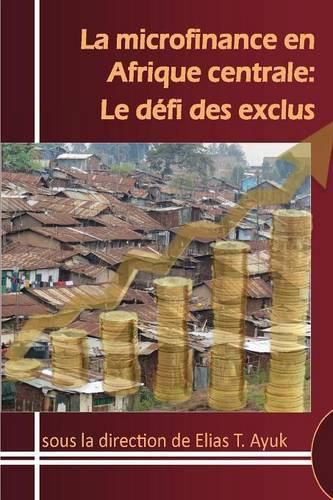Readings Newsletter
Become a Readings Member to make your shopping experience even easier.
Sign in or sign up for free!
You’re not far away from qualifying for FREE standard shipping within Australia
You’ve qualified for FREE standard shipping within Australia
The cart is loading…






This title is printed to order. This book may have been self-published. If so, we cannot guarantee the quality of the content. In the main most books will have gone through the editing process however some may not. We therefore suggest that you be aware of this before ordering this book. If in doubt check either the author or publisher’s details as we are unable to accept any returns unless they are faulty. Please contact us if you have any questions.
The rural poor face a major challenge to access financial services provided by the formal banking system. These poor are excluded from the system because of the requirements imposed on them by that banking sector. The microfinance promise is to ensure that the excluded have access to financial products. Financial intermediation of microfinance through microcredit, micro-transfers, micro-saving and micro-insurance has gained popularity in the developing countries of the world during the past thirty years. For these countries the question is to determine the potential role of microfinance in reducing poverty and in strengthening economic growth. While a considerable amount of research has been undertaken in other parts of the world on these issues, there is a dearth of empirical knowledge in the Central African countries. This book ‘Microfinance in Central Africa: The challenge of the excluded’ presents results of empirical research concerning microfinance institutions in Central Africa. The book draws from a project that was supported by the International Development Research Centre (IDRC) in the context of the Centre’s globalization, growth and poverty programme initiative. The project examined issues related to the market for microfinance, institutional considerations, efficiency and behaviour of key actors and the impact of microfinance. The studies within the project were undertaken by teams of researchers and doctoral students, all mainly economists and jurists, in four countries in Central Africa, namely: Cameroon, Chad, Congo Republic and Gabon. The book should serve as a reference guide with respect to the microfinance experience in the region for the scientific community, policy makers and other development practitioners
$9.00 standard shipping within Australia
FREE standard shipping within Australia for orders over $100.00
Express & International shipping calculated at checkout
This title is printed to order. This book may have been self-published. If so, we cannot guarantee the quality of the content. In the main most books will have gone through the editing process however some may not. We therefore suggest that you be aware of this before ordering this book. If in doubt check either the author or publisher’s details as we are unable to accept any returns unless they are faulty. Please contact us if you have any questions.
The rural poor face a major challenge to access financial services provided by the formal banking system. These poor are excluded from the system because of the requirements imposed on them by that banking sector. The microfinance promise is to ensure that the excluded have access to financial products. Financial intermediation of microfinance through microcredit, micro-transfers, micro-saving and micro-insurance has gained popularity in the developing countries of the world during the past thirty years. For these countries the question is to determine the potential role of microfinance in reducing poverty and in strengthening economic growth. While a considerable amount of research has been undertaken in other parts of the world on these issues, there is a dearth of empirical knowledge in the Central African countries. This book ‘Microfinance in Central Africa: The challenge of the excluded’ presents results of empirical research concerning microfinance institutions in Central Africa. The book draws from a project that was supported by the International Development Research Centre (IDRC) in the context of the Centre’s globalization, growth and poverty programme initiative. The project examined issues related to the market for microfinance, institutional considerations, efficiency and behaviour of key actors and the impact of microfinance. The studies within the project were undertaken by teams of researchers and doctoral students, all mainly economists and jurists, in four countries in Central Africa, namely: Cameroon, Chad, Congo Republic and Gabon. The book should serve as a reference guide with respect to the microfinance experience in the region for the scientific community, policy makers and other development practitioners